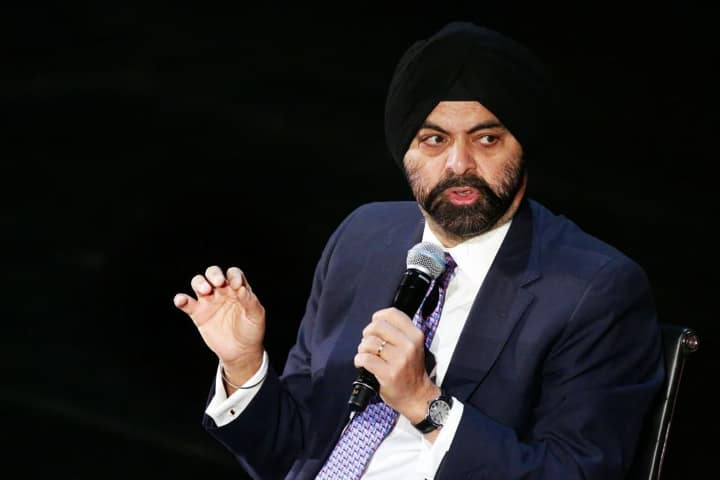

World Bank President Ajay Bangla
As India managed to steer the G20 deliberations on economic issues with a focus on Global South, the rare joint statement issued by the World Bank and International Monetary Fund (IMF) reiterating their commitments towards expanding cooperation to deal with challenges relating to climate change, debt vulnerabilities and countries’ digital transitions will be a big boost for New Delhi.
“We will enhance our joint work to help prevent further build-up of debt vulnerabilities, assisting countries to strengthen debt management and transparency and public finances,” Kristalina Georgieva, Managing Director, IMF and Ajay Banga, President, World Bank said in the joint statement. The two multilateral agencies also pledged to expand support to creditors and debtors dealing in debt restructurings.
The world confronts significant economic challenges, the existential threat of climate change as well as a digital transition, all in the context of more frequent shocks, high debt levels, limited policy space in many countries and rising geopolitical tensions,” the statement read.
As the African Union is now set to get membership of the G20 forum, India has managed to position itself as the voice of the Global South. Even as the US and several other G20 members have tried to highlight the Russia-Ukraine war, India with the slogan – ‘One Earth-One Family-One Future’ has primarily stuck to economic issues concerning the world, but particularly the Global South.
A blog, published by the American think tank Atlantic Council, noted that Prime Minister Narendra Modi has tried to sidestep the contentious issue of Russia’s war in Ukraine, arguing that, instead, the United Nations (UN) is the proper international organization to discuss this problem, while the G20 should remain a forum for economic and financial coordination.
“The core mandate of the G20 is to promote economic growth and development,” External Affairs Minister Subrahmanyam Jaishankar said in late August. “And that cannot advance if the crucial concerns of the Global South are not addressed.
According to the think tank, several issues and proposals such as reforms of global financial institutions, restructuring of sovereign debt and climate financing that India has raised during its presidency have not received support from either the G7 or China. “Nevertheless, the fact that India has been able to articulate them should reflect well on its efforts to be viewed as the voice of the Global South,” it said.
“The past G20 summits had failed to evoke any significant interest among the Global South including the African nations but this time due to the drastic shift in focus, it is of no surprise that the next two days will be watched closely by almost the entire world community,” a foreign policy analyst with a research agency noted.
Decisions and deliberations on debt management, for instance, will have far reaching implications for the Global South and even the South Asian nations including Pakistan and Sri Lanka, which have been caught amid unparalleled economic crises.
The ongoing "Haqooq Do, Dam Banao Tehreek" protest, led by Amir Quaid, entered its 25th…
The Indian Space Research Organisation on Thursday announced the successful completion of its SpaDeX mission's…
Taiwan's Ministry of National Defence (MND) reported 20 sorties of People's Liberation Army (PLA) aircraft,…
Prime Minister Narendra Modi and his Mauritius counterpart Navinchandra Ramgoolam have agreed to facilitate trade…
Baloch Human Rights Council Information Secretary Khurshid Ahmed on Thursday said that the Jaffar Express…
The Bangladesh Hindu Buddhist Christian Unity Council, the largest minority group in Bangladesh, claimed on…